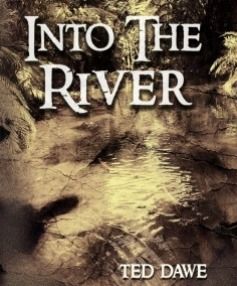New Zealand: Censors ban award-winning teen novel Into The River by Ted Dawe

Censors in New Zealand have banned Into The River, an award-winning teen novel from its shelves, making it the first book to be removed from shelves in more than two decades.
"Do we live in a country where books get banned? I'll get burnt next."
The book, which won the New Zealand Post children's book of the year in 2013, was banned after receiving 400 emails of complaints.
The Film and Literature Board of Review said the ban was temporary and would be in place until the full board meets to decide on a permanent classification for the book.
A spokesman confirmed that this is the first time a book has been banned since the current legislation, the Films, Videos and Publications Classification Act 1993 was introduced, AFP reports.
The censors took action after the conservative lobby group Family First New Zealand filed a complaint, objecting to detailed descriptions of sex acts, coarse language and scenes of drug taking.
The book tells the story of a Maori boy who wins a scholarship to an exclusive Auckland boarding school but struggles with racism and drugs.
"We would be much more effective as a society if we worked to counter the problems that the book articulates rather than trying to restrict the book."
Author Ted Dawe, 64, the head of studies at Taylors College for international students in Auckland told the New Zealand Herald that he was blindsided by the ban. "It's extraordinary. I've had quite a few emails from people who share that sense of outrage. Do we live in a country where books get banned? I'll get burnt next."
He added: "New Zealand has taken a giant step towards that sort of regulatory moralising that I think most people felt we had left far in our past."
He defended his book saying that it was "never about sex and drugs. It was always about bullying people and how that damages people for the rest of their lives. That is really the underlying theme, everything else is just the trappings that go along with that."
Banning of the book "a tragedy"
The New Zealand Libraries Association director Joanna Matthew told the newspaper that libraries generally supported freedom of speech and saw the ban on Into the River as a tragedy.
"If we censor literature that talks frankly about some of these issues, then I think we run the risk of burying them. We would be much more effective as a society if we worked to counter the problems that the book articulates rather than trying to restrict the book."
The New Zealand Booksellers Association has placed a notice on its website telling bookshops that they face fines of up to NZ$3,000 for an individual or NZ$10,000 for a business if they supply the book. The book is being pulled out from libraries, schools and bookshops in the country.
Family First national director Bob McCoskrie told Radio New Zealand's Morning Report that it had not intended for the book to be banned saying that it was satisfied with the R14 restriction initially placed on the book. The group however, he said, would have been happier if it was R18.
According to stuff.co.nz, Deputy Chief Censor Nick McCully had rulled last month that the book should be unrestricted but the President of the Review board, Don Mathieson, stepped in and put an interim ban on the book.
McCoskrie said: "It's a book that's got the c-word nine times, the f-word 17 times ...." He conceded that the censor's office had gone "against due process" in banning the book.
The move received a number of tweet messages with New Zealand comedian Raybon Kan saying that he intends to read the book, and poked fun at the censorship board saying: "Wait til the NZ censorship board finds out about 50 Shades of Grey. Bookshops will be EMPTY."
Wait til the NZ censorship board finds out about 50 Shades of Grey. Bookshops will be EMPTY.
— Raybon Kan (@RaybonKan) September 7, 2015Novelist Emily Perkins said that if she was a teenager and had not read the book, she would definitely read it now.
On that banned book: if I were a teenager and hadn't read Into the River I would *definitely* want to read it now.
— Emily Perkins (@EmilyJPerkins) September 6, 2015© Copyright IBTimes 2025. All rights reserved.






















